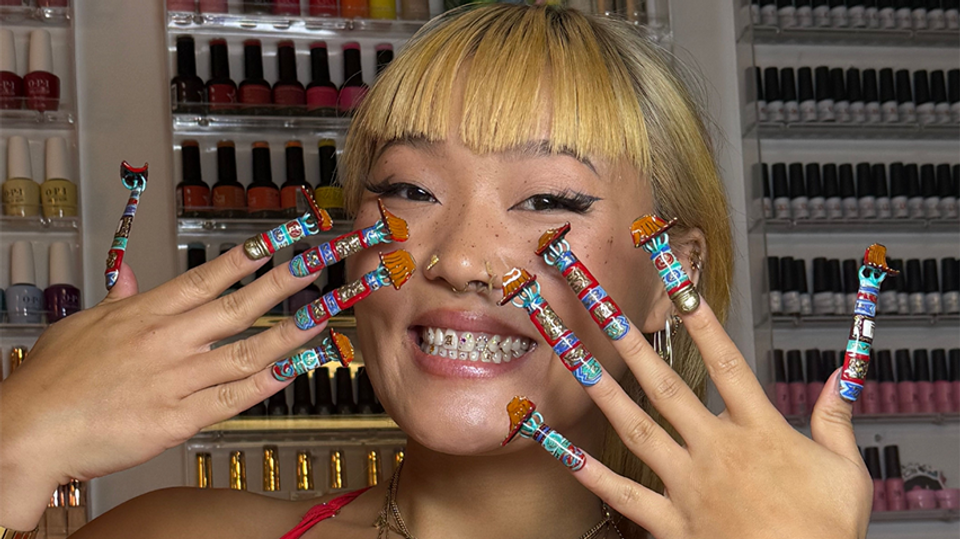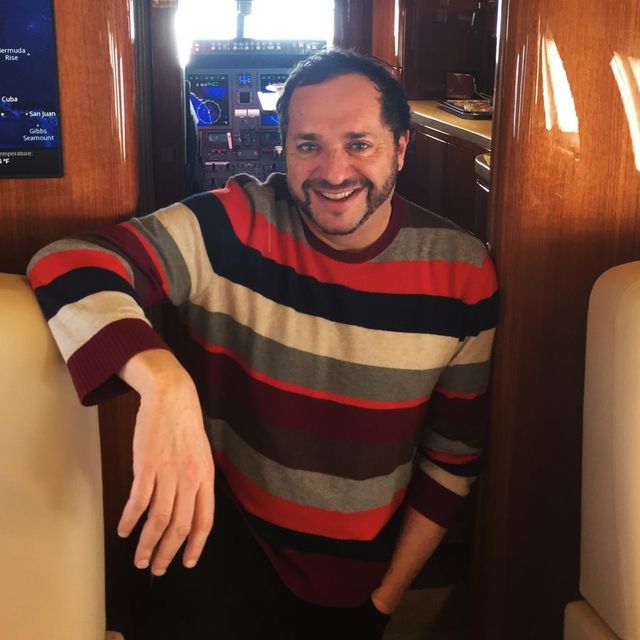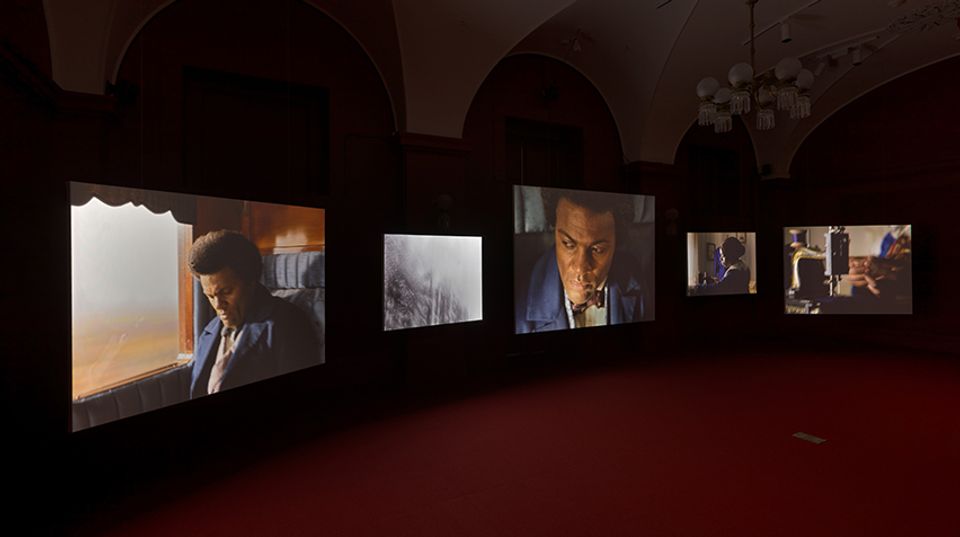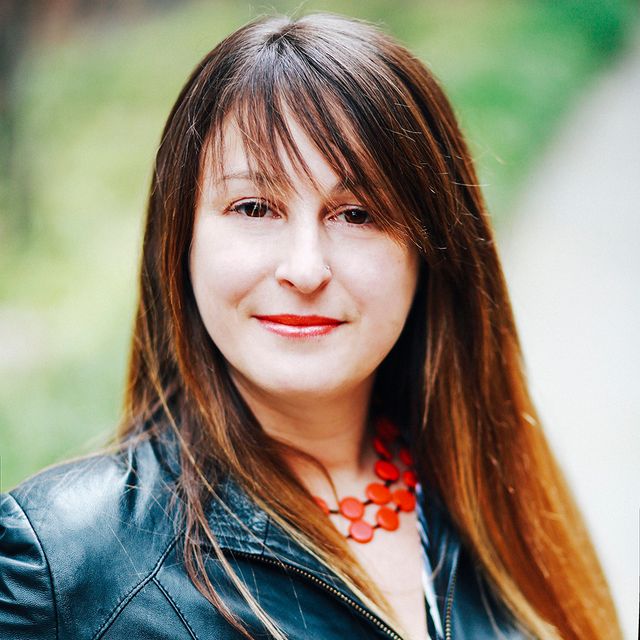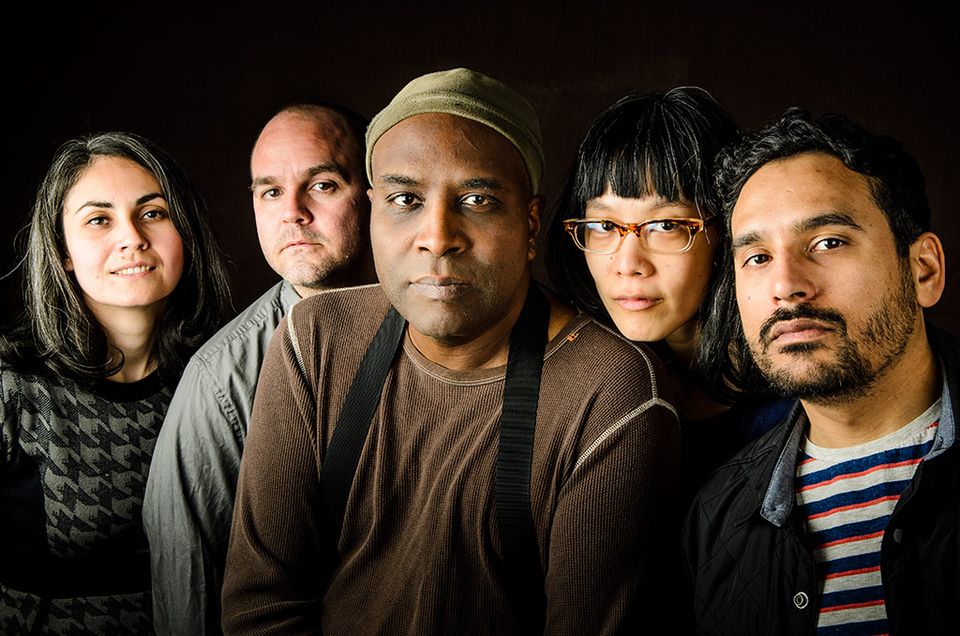
It's time for another Luce Unplugged Community Showcase, and we couldn't be more excited to team up with Washington City Paper to present Beauty Pill, next Friday, May 20th from 6 to 8 p.m. If you aren't familiar with this beloved D.C. band, check out their 2015 album Beauty Pill Describes Things as They Are. Recorded in public view as an art project at Artisphere, the album was met with instant critical acclaim. NPR Music's Lars Gotrich named it the "best album of 2015" and Rolling Stone called it "one of the 15 best albums you may not have heard in 2015." We can't wait to hear their songs in the Luce next Friday, where, while listening to their set, you'll be able to grab a free drink sample from D.C. distillery Cotton & Reed, purchase a full-size cocktail, and enjoy the Luce Center's 3,000 plus artworks.
We talked to the band's leader, Chad Clark, about his views on performance, songwriting, and the experiment they plan to run with the show.
Eye Level: How do venue and audience affect your performance?
Chad Clark: When I was younger, I used to believe that if you were a "real artist," you would not let audience reception affect your art. If the work was "pure," it shouldn't matter how it was received. I now recognize this was a dumb stance. Performance is interactive. Physical environment affects you, social environment affects you. Everything affects you. That's not shameful or a liability, it's the beauty of live music.
EL: Is songwriting for you a collaborative process or something you do on your own?
CC: Mostly solitary for me. It can be lonely. Like most artists, I go into a reverie and hope to somehow come out of it with something worthwhile. I have a new song called "Fugue State In An Unfamiliar Neighborhood." This is what creativity feels like.
EL: How do you alleviate writer's block?
CC: Listen to the people around you. If you listen the right way, they'll do the writing for you. Many of my favorite Beauty Pill lyrics are just ambient quotes overhead from strangers, recontextualized.
EL: What can we expect at your show?
CC: This show will be a special experiment, augmenting our band with a horn quartet. We are only going to practice one time before the show. There's an aspect of tightrope walk, I guess.
EL: What do you love about D.C.'s music scene? What would you like to change?
CC: I am not nostalgic by nature, but I would love to return to a period when D.C. music felt indigenous. In other words, not Brooklyn, not Chicago, not L.A., but distinctly D.C. One obvious (and maybe unfair) precedent to cite is go-go music. But there's even a long history of wildly eccentric regional rock music that was sui generis. Shudder To Think, The Nation Of Ulysses, Lungfish (who were Baltimore)... these innovative bands were led by brilliant, visionary crazy people. So what happened? Do we not make enough crazy people anymore? People cite technological shifts (people have easier access to broader cultural influences via the internet, which makes art feel consequently blander), economic shifts (D.C.'s now so punishingly pricey that artists can't exist here anymore), or generational shifts (some think millennials are a milder generation, etc.). I don't know what it is, but clearly something is different. And I don't think it's fair or reasonable to expect Dischord [D.C. label] to keep serving up a vanguard in perpetuity. My friend Will Eastman has been a galvanizing figure in the dance music world and he has helped to cultivate that scene here in the last decade. All scenes need passionate people to drive them forward. They deserve our engagement and support and acknowledgement.
EL: How has your sound evolved?
CC: I no longer feel Beauty Pill is a rock band. Or maybe we are, but you have to use quotation marks. "Rock band."
Don't miss Beauty Pill on the Luce Center "stage" next Friday, May 20th at 6 p.m.














